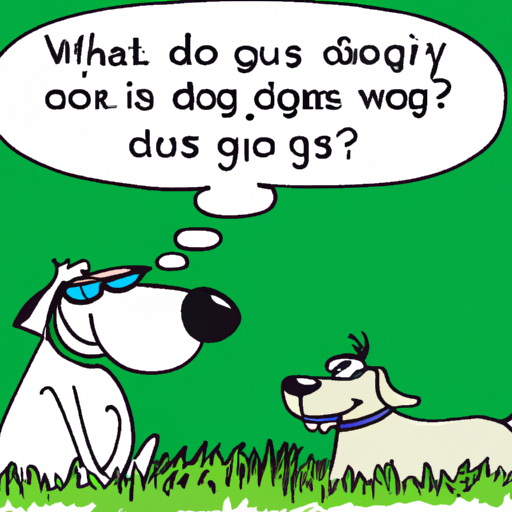Understanding Your Canine Companion
As a caregiver, you want to understand every aspect of your pet’s behavior. You’ve seen it happen countless times – your dog munches on grass during a walk, only to throw up shortly after. It’s a puzzling, worrisome sight that leaves you questioning if your furry friend is feeling well.
Grass-eating is a common habit in dogs. In fact, according to a study published in the journal “Applied Animal Behavior Science,” 79% of dog owners reported their pets eating grass or plants at some point. But what causes this behavior, and why does it sometimes lead to vomiting?
The Science Behind Canine Grass-Eating Behavior
While the exact reasons dogs eat grass remain a mystery, several theories attempt to provide an explanation. Some of these include:
- Nutritional Deficiency: Dogs might eat grass to fulfill a nutritional need. They may be seeking out roughage which aids in digestion or certain nutrients found in plant matter.
- Stomach Discomfort: Some dogs may eat grass to induce vomiting when they’re feeling unwell.
- Boredom or Anxiety: Dogs might eat grass out of boredom or as a response to anxiety.
- Evolutionary Behavior: It’s also possible this behavior is an inherited trait from their wild ancestors, who ate grass occasionally.
The Connection Between Grass and Vomiting
While grass-eating does not always lead to vomiting, it can certainly trigger it. The grass’s long, sharp blades can irritate the throat and stomach lining, causing the dog to throw up. Additionally, if the grass was treated with pesticides or fertilizers, those chemicals could also induce vomiting.
However, it’s important to note that occasional vomiting in dogs is not necessarily a cause for concern. It’s when it becomes frequent or is accompanied by other symptoms that you should seek veterinary attention.
When to Be Concerned
As a caregiver, it’s essential to keep a close eye on your dog’s behavior and overall health. While occasional grass-eating and vomiting are usually not a cause for alarm, there are certain signs that indicate a potential problem:
- Your dog eats grass excessively or obsessively
- Vomiting becomes frequent or severe
- Your dog shows signs of distress or discomfort
- Loss of appetite or weight
- Changes in stool or urine
If you notice any of these signs, it’s vital to consult a vet immediately.
Helpful Tips for Handling Grass-Eating Behavior
While you can’t completely stop your dog from eating grass, here are some things you can do:
- Make sure your dog gets proper nutrition and adequate fiber.
- Provide mental stimulation to prevent boredom.
- Avoid walking in areas where the grass may be treated with chemicals.
- Consult your vet if the behavior seems obsessive or causes distress.
Frequently Asked Questions
Q: Why does my dog eat grass?
A: The exact reasons are unknown, but theories include nutritional deficiencies, stomach discomfort, boredom, anxiety, or inherited behavior.
Q: Is eating grass harmful to dogs?
A: Generally, no. But if the grass is treated with chemicals, it could be harmful. Also, excessive grass-eating can indicate an underlying issue.
Q: What should I do if my dog eats grass and vomits?
A: Occasional vomiting is not necessarily a cause for concern. However, if it becomes frequent, severe, or is accompanied by other symptoms, consult a vet immediately.



